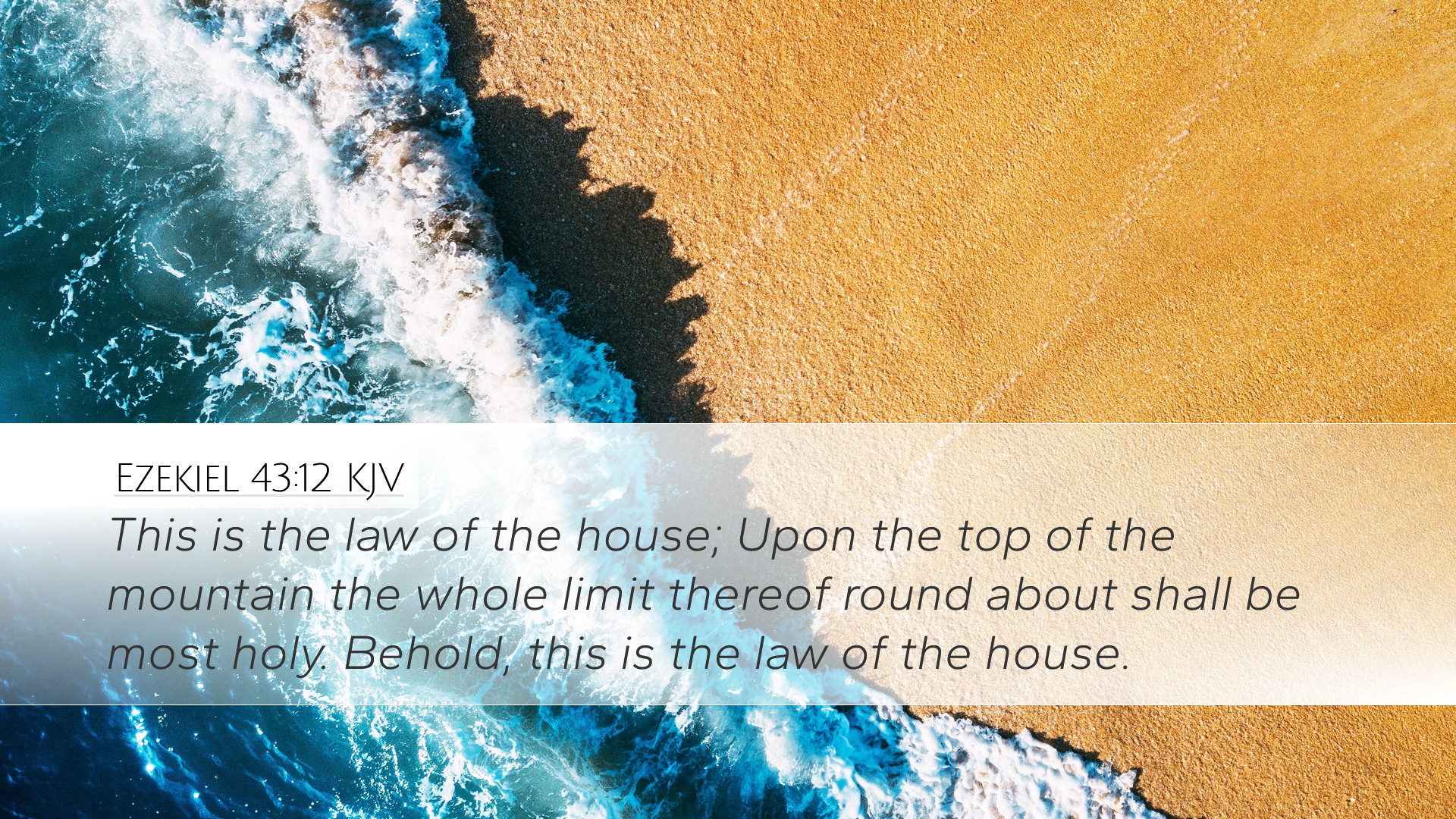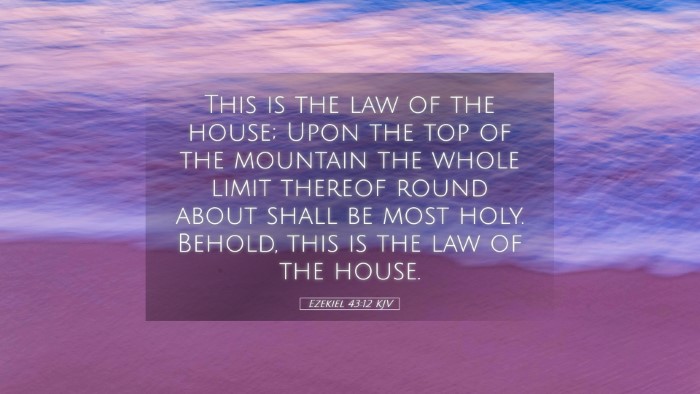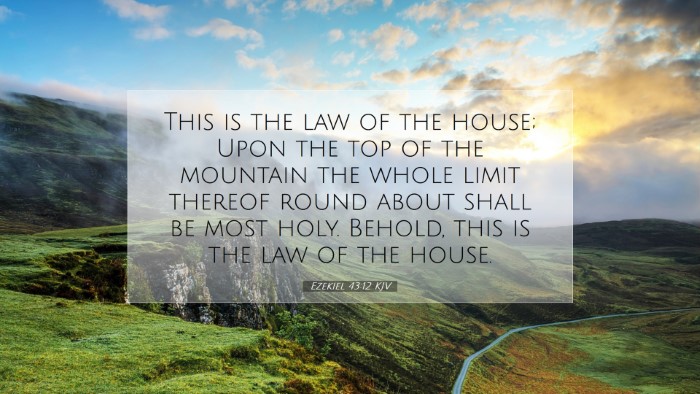Bible Commentary on Ezekiel 43:12
Ezekiel 43:12: "This is the law of the house; upon the top of the mountain the whole limit thereof round about shall be most holy. Behold, this is the law of the house."
Introduction
The passage of Ezekiel 43:12 stands as a pivotal point in the prophet's vision of the restoration of Israel. As Ezekiel emphasizes the holiness of the temple and its surroundings, this verse encapsulates the divine principles that dictate the relationship between God and His people. Both scholars and clergy find rich spiritual significance in this proclamation.
Contextual Overview
Ezekiel's prophecy occurs during the Babylonian Exile, a time when Israel faced spiritual desolation. This chapter reveals a vision of the temple that serves as a metaphor for God’s promise of restoration. Through this temple, God intends to dwell among His people once again.
Holiness of the Structure
Matthew Henry, in his commentary, emphasizes that the “most holy” nature of the temple signifies God’s presence. The entire area surrounding the temple is marked by sanctity. This is not just a physical structure but represents a covenantal relationship where God resides with His people.
Albert Barnes' Insights
Barnes points out the implications of holiness in the context of worship and daily conduct for the people of Israel. He underscores that this law serves as a reminder that God’s dwelling place must reflect His purity and righteousness. The sanctuary is to be treated with reverence, and the laws governing it delineate the seriousness with which Israel ought to approach their worship.
Covenant and Responsibility
Adam Clarke draws attention to the responsibilities that come with God’s presence. The "law of the house" indicates not only the holiness required but also the responsibilities of the inhabitants. They are to live according to God’s statutes, reflecting the sanctity of the land.
Apocalyptic Imagery
This passage is laden with apocalyptic imagery, symbolizing not just a physical temple but a restoration of spiritual order. The "mountain" mentioned signifies stability and permanence, becoming a beacon of hope for the Israelites. Through these symbols, Ezekiel conveys a profound theology of God’s desire for communion with humanity.
Theological Implications
The declaration that "the whole limit thereof round about shall be most holy" speaks volumes about God’s nature and the community’s calling. Holiness is not an abstract theological concept but a lived reality. It demands an appropriate lifestyle that honors the divine.
- Community Identity: The community is set apart, emphasizing a distinct identity as God's chosen people.
- Divine Presence: God's presence is not confined to the inner sanctum but permeates all aspects of life.
- Holiness in Worship: True worship arises from living in accordance with God's laws, extending beyond mere rituals.
Practical Application for Today
For pastors and church leaders, Ezekiel 43:12 serves as a clarion call to cultivate environments where holiness is paramount. This means fostering a spirit of reverence in worship, recognizing that how we engage with God profoundly impacts our witness to the world.
The Role of the Church
Just as the physical temple was a center of worship and community, the modern church should also be a reflection of holiness and God's presence. The church is called to be a “city on a hill,” demonstrating the transformative power of a holy life.
Conclusion
In conclusion, Ezekiel 43:12 provides crucial insights into the nature of God’s relations with His people. It establishes a structure of expectation and reverence, serving as a foundation for worship and community identity. For theologians and students of the Bible, this text offers both historical and contemporary lenses through which to understand divine holiness and human responsibility.
Ultimately, the call is for a holistic approach to holiness—a life that reflects the character of God in all areas and affairs.


